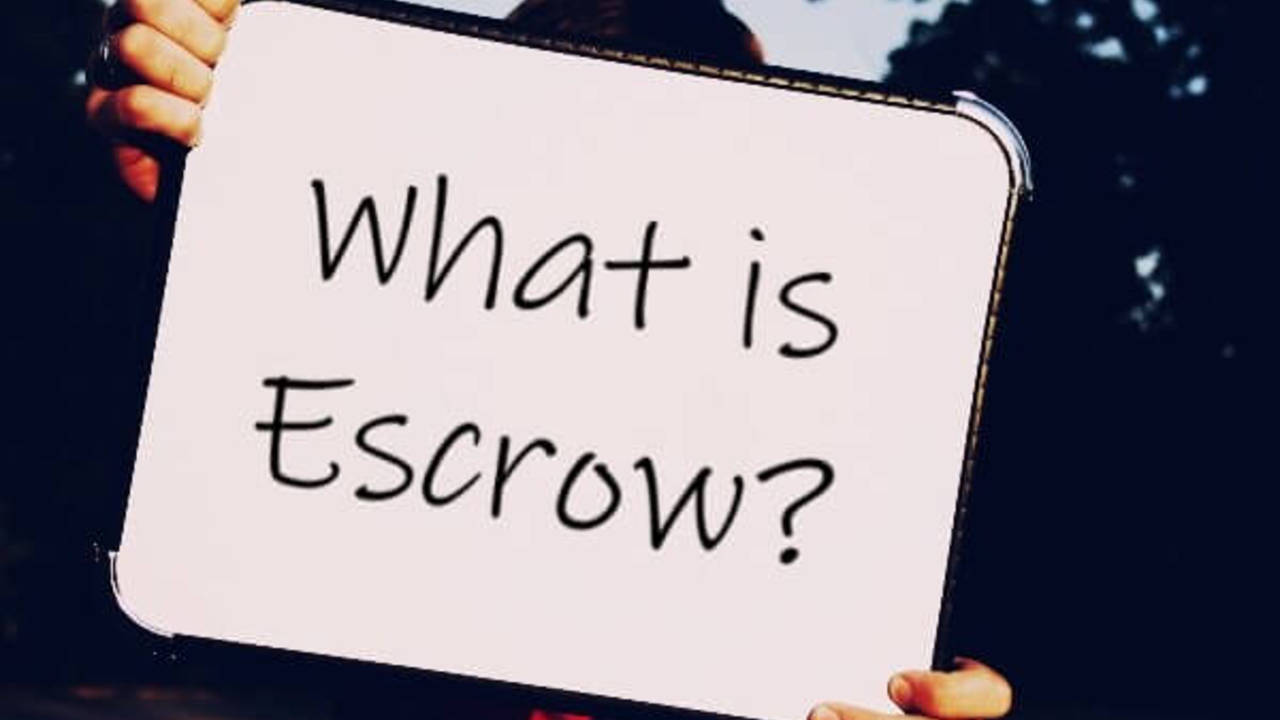If you’re planning to buy a home, you’ve probably heard the word “escrow” at least once. But what is escrow? You might have an idea about it, or you might have none. That’s alright — we’ll cover both of those here!
Before buying a home, understanding what escrow is can help you minimize your risk and go forward with the sale with peace of mind. Escrow can be used in many transactions, which is why it’s important to know what escrow is and how escrow works.
So, What Exactly Is Escrow?
According to Escrow.com, an escrow is a financial arrangement where a third party holds and regulates payment of the funds required for two parties involved in a given transaction. It helps make transactions more secure by keeping the payment in a secure escrow account which is only released when all of the terms of an agreement are met as overseen by the escrow company.
In simpler terms, an escrow is an agreement in which a third party controls the payments between the buyer and the seller and only releases the funds involved when all of the terms of a given contract are met. The third party can hold large sums of money, paperwork, or other assets until the transaction has been finalized.
How Escrow Works
In real estate, escrow starts when you find your dream home, and the seller accepts your offer. As a home buyer or seller, being in escrow means different things.
- As a home buyer, you agree to pay a percentage of the property into escrow for safekeeping.
- As a home seller, you agree to take the house off the market while it’s in escrow and to make it available for inspections.
The main purpose of an escrow is to ensure a smooth and impartial real estate transaction from start to end.
Types Of Escrow Accounts
In real estate, escrow is commonly used for two purposes:
- To protect the buyer’s good faith deposit — also known as earnest money, and to make sure that the money goes to the right party according to the conditions of the sale
- To hold a homeowner’s funds to pay for taxes and insurance
Because there are two purposes for escrow, there are also two types of escrow accounts. One type is used during the home buying process, and the other is used for the duration of your loan.
Escrow For Buying A Home
When you’re buying a home, the purchase agreement will include earnest money, which is an amount of money that you deposit in escrow to show that you’re serious about purchasing a home.
If the sale falls through due to a fault of the buyer, the seller will usually get to keep the money. On the other hand, if the home purchase is successful, the deposit will go to the buyer’s down payment.
An escrow account is set up to hold the deposit. This is done to protect both the buyer and the seller. The earnest money in escrow will stay in the account until the transaction is finalized. Then, the cash will be put into the buyer’s down payment.
However, sometimes there can be a few setbacks before the deal can close. This is when the funds held in escrow will stay in the account even after the home sale.
This is known as an escrow holdback. There are many reasons why an escrow holdback may be needed, and one possible reason is that you found something wrong with the property during the final walk-through.
An escrow holdback will act like an insurance policy for the buyer and the seller.
On the seller’s part, it can be an assurance that the buyer is serious about the purchase, and it will motivate them to finish all the necessary repairs. On the other hand, the buyer will get the money in the account if the home seller does not complete the repairs or overstays in the home.
Escrow For Owning A Home
After you purchase your dream home, your lender may require an escrow account to pay for your taxes and insurance. After the deal closes, your lender will take a percentage of your monthly mortgage payment and hold it in the escrow account until your tax and insurance payments are due.
However, the amount required for escrow is not constant. Your tax bill and insurance premiums can change every year. Therefore, your mortgage servicer will determine your escrow payments for the next year from what bills they paid during the previous year.
To make sure that you have enough cash in escrow, most lenders will require around two months’ worth of extra payments to be kept in your escrow account.
If your lender’s analysis determines that they’ve collected too much for your taxes and insurance, they will give you a refund. On the other hand, if they find that they had collected too little, you will have to cover the difference.
So now you know what escrow is and how it works. Although you may be tempted to go without an escrow account as it means lower mortgage payments, escrow is an important part of purchasing a home.
The biggest benefit of having an escrow account is that you’ll be protected during a real estate transaction, whether you’re a buyer or the seller. It can even protect you as a homeowner, as it ensures that you have enough money to pay for property taxes and insurance.
We Buy Houses Here
2 Washington Sq. # 1449
Haverhill, MA 01831



Comments(0)